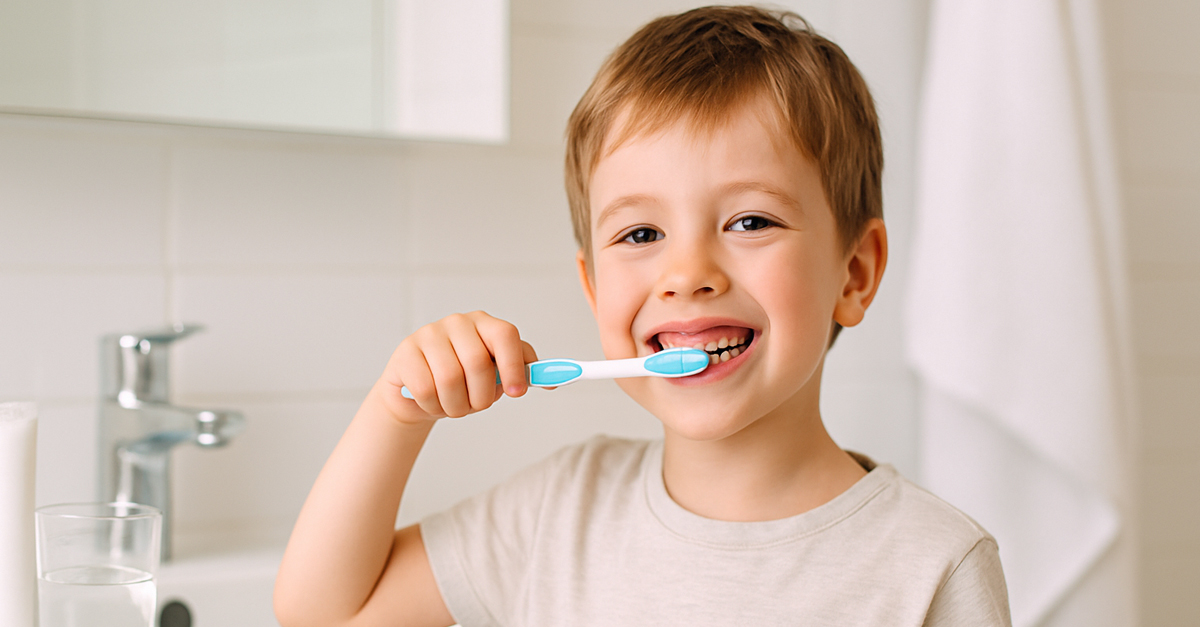
Why Children With Gum Disease Should Not Be Ignored
Why Children With Gum Disease Should Not Be Ignored
As responsible adults, we are duty-bound to protect the health of our children by making sure they eat well, exercise, and get the rest they need. However, dental hygiene is one area of children’s health that is irrefutably important but isn’t taken very seriously, particularly gum disease.
Probably because it’s the kind of problem most people associate with adults, however, the reality is that children can suffer from gum disease too. If not detected in time, it can spiral into more complex problems in the future.
Most people tend to underestimate the impact of gum disease on children. However, it is a proven fact that untreated gingivitis can escalate into more serious issues which include but are not limited to pain while chewing food, and more chronic concerns with their dental structure in the future
In this article, we are going to discuss why it is necessary to take care of gum disease in children, and also how best to prevent it.
What Is Gum Disease in Kids?
Gum disease, also referred to as gingivitis in its initial stage, is the inflammation of the soft tissues of the cavity that is due to an infection from gum plaques a situation characterized by the logarithmic growth of a gummy film formed of micro-organisms which attaches to teeth.
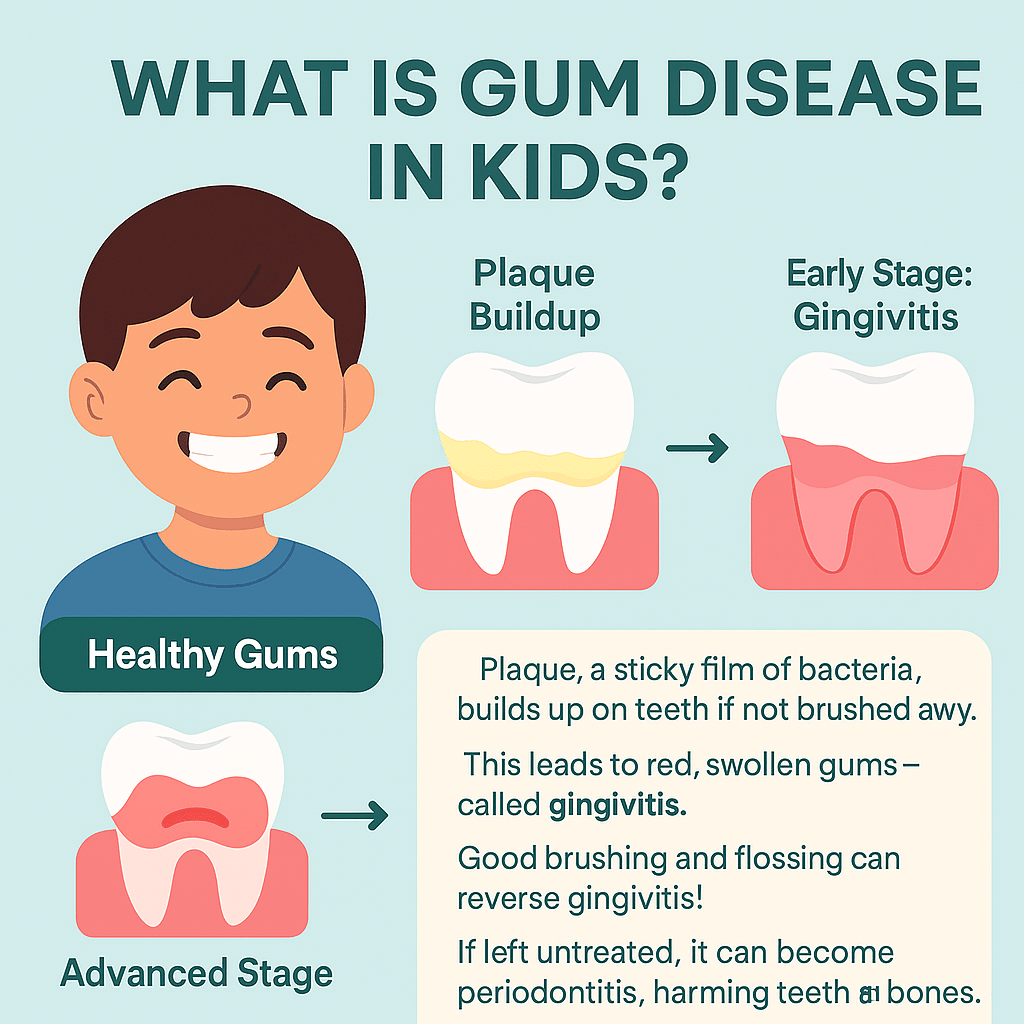
If plaque is not eliminated by frequent brushing, it can turn into tartar which can provoke the gums and cause swelling or inflammation.
Gingivitis is frequent amongst kids, though it is often mild and can easily be switched back with proper dental care. In case it is left alone with no treatment, it has the potential of evolving to a more harmful stage called periodontitis which tends to cause more permanent damage to the gums and bones that hold the teeth.
Why Should You Care About Gum Disease in Children?
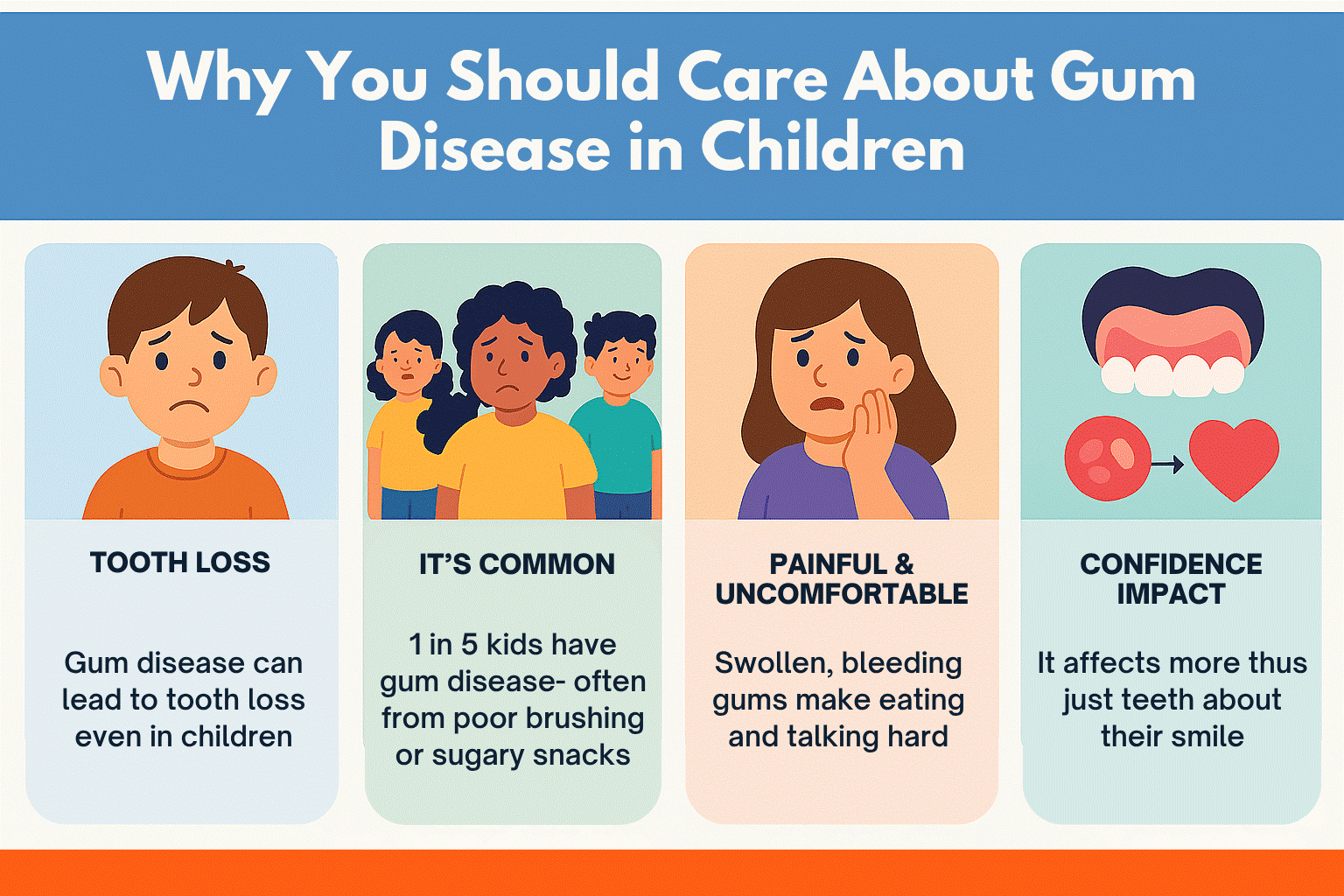
At this stage it is normal to ask, “Is something like gum disease really a concern for my child?”. This does need to be treated with seriousness and here is the answer.
1. Gum disease may result in your child losing teeth – Losing teeth is one of the things that children fear the most and is a leading cause of concern for adults; if not treated it could lead to the same consequences for children too. As extreme as it may sound, it is diagnosed that gums tend not to be as strong in children, comparatively making them more prone to risk. Although baby teeth are a temporary addition, it can still have a lasting effect on their adult teeth. This is one of the reasons gum diseases could result in the teeth coming in crooked leading to a lifelong concern with their smile.
2. It’s more common than you expect – In fact, around 20% of children between the ages of 5 and 11 are victims and sufferers of gum disease. Inadequate oral hygiene, along with sweet treats and drinks, is known to be a major problem. Children tend not to brush their teeth adequately, if at all, leading to plaque formation. You should pay attention to signs of gum disease, such as swollen, bleeding, or red gums; these might be indicators that gum disease has set in.
3. Can Be Painful and Uncomfortable – The discomfort from gum disease is normallyn’t obvious, making it a lot easier to overlook. However, the problems that it causes get much worse if unresolved. Eating, talking, or even smiling can become painful because of swollen, bleeding gums. In case your child’s gums hurt or bleed when they brush their teeth, that is a clear sign to see a dentist.
4. It affects more than just teeth – There are a lot of other problems that can arise from gum disease, making it a serious issue beyond normal dental concerns. New research suggests that there is a link between gum disease and other medical issues such as heart disease or diabetes. This happens because the bacteria from the infected gums can move to the bloodstream and infect the body.
5. It can impact their confidence – The appearance of kids greatly affects their self-esteem, making the problematic symptoms of gum disease like bad breath, bleeding gums, or even loose teeth a cause of major concern. It can be damaging to their self-esteem, making them more reluctant to engage with other people. Caring for their gums helps make sure that they have an easygoing smile, which can enhance their self-esteem.
How to Spot Gum Disease in Kids
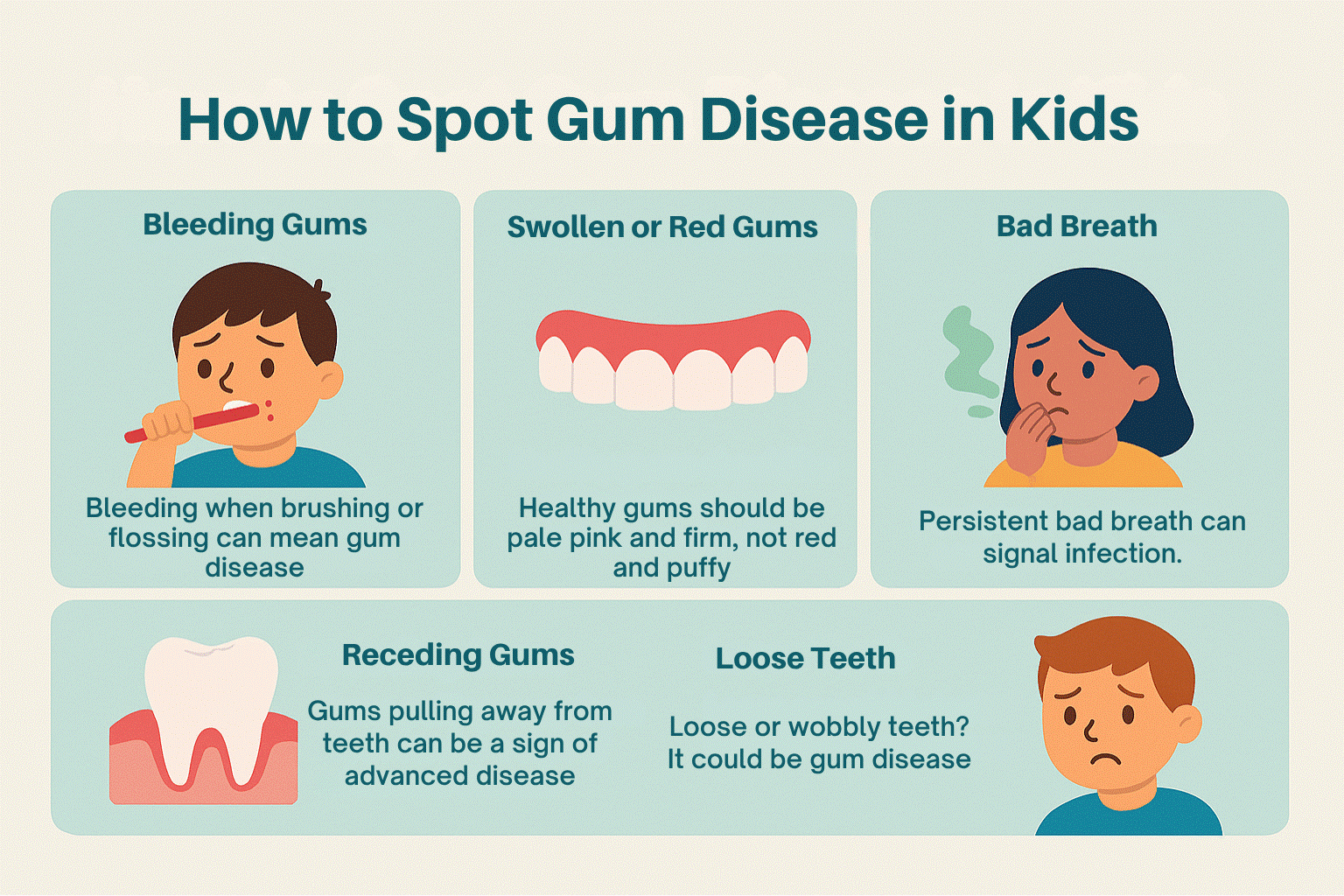
Identifying gum disease should be done at an early stage to avoid more serious issues later on. The following are symptoms that may indicate your kid has gum disease.
- Bleeding Gums: If your child’s gums bleed while brushing or flossing, it’s a sign of inflammation and possible gum disorder.
- Swollen or Red Gums: Healthy gums look firm and light pink. If they are swollen, red or tender, there is likely an infection.
- Bad Breath: Unpleasant scent from the mouth not alleviated by regular brushing is a sign of gum problems or other medical issues.
- Receding Gums: Noticing your child’s gums are stripped away from the teeth is considered advanced gum disease.
- Loose Teeth: Wobbly or loose teeth in your child may indicate gum disease has affected the tissues that support the teeth.
How to Prevent Gum Disease in Kids
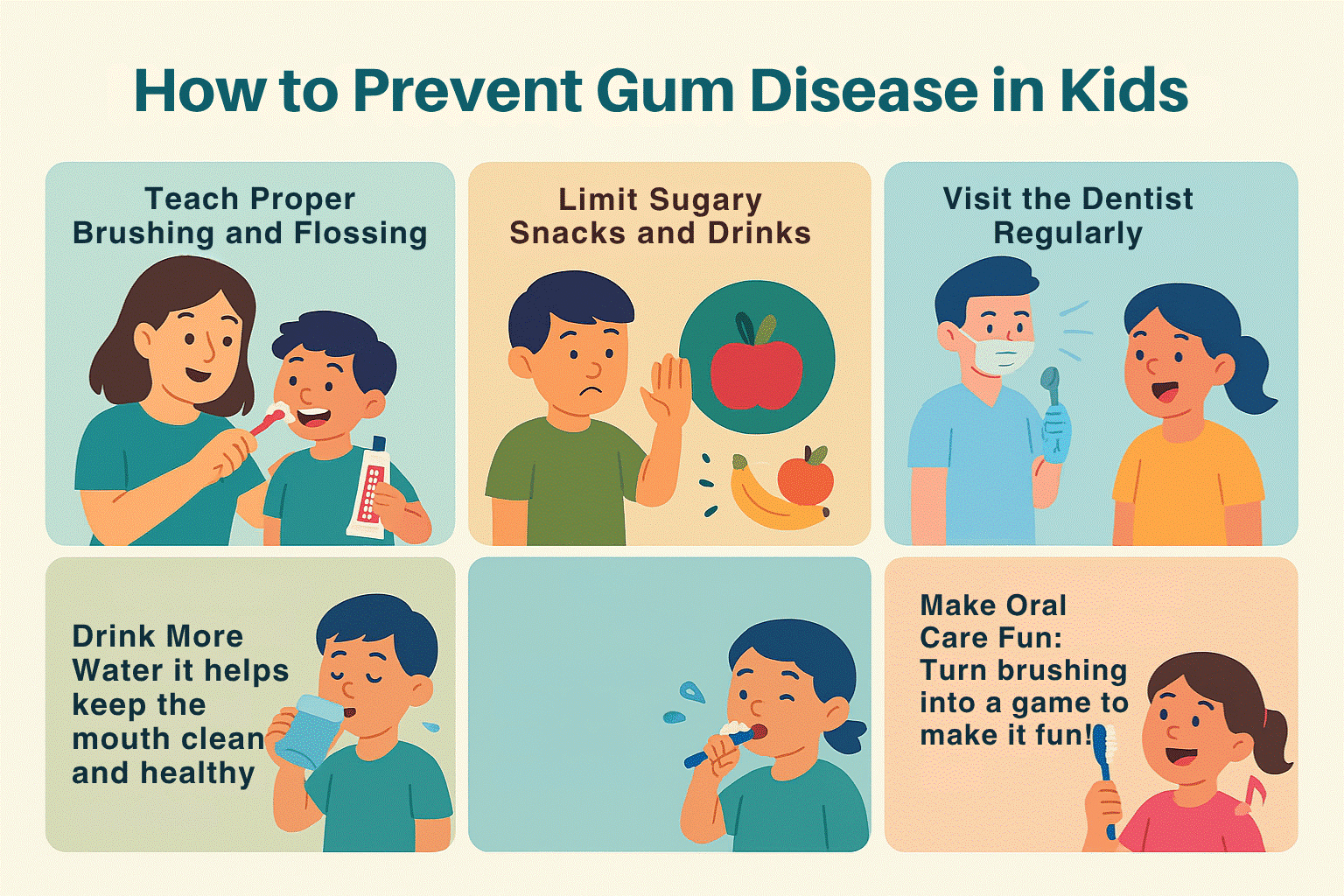
The good news is that gum disease is preventable with the right habits. Here’s what you can do to help your child avoid it:
1. Teach Proper Brushing and Flossing
Set a good example by encouraging your child to brush their teeth twice daily and floss once per day. This is not only helpful for their overall hygiene but also goes a long way in preventing gum disease. Ensure the child tops using fluoride toothpaste and rote brushing for two minutes before aiding them with the process until the age of 6 or 7.
Encourage your child to eat well-balanced meals. A diet rich in sugary products fuels the body and contributes to plaque buildup, leading to gum disease. Eat more whole grains, fresh fruits, and vegetables, while minimizing sugary snacks and drinks, especially shoved in between meals.
3. Keeping Regular Dental Check-Up Appointments
Monitoring your child’s dental visits and scheduling them every 6 months not only aids in catching the gum disease in early stages, but also ensures that he/she goes through regular checkups and teeth cleaning sessions, catching early warning Signs of gum disease in children before they escalate into serious issues.
4. Participating in Maintaining Positive Healthy Lifestyle Choices at Home
Besides the frequent need to brush and floss, drinking water is also essential for a child’s oral hygiene. Making these are incorporated into the child’s live makes bringing about Oder, discipline, and cleanliness tenable at homes straightforward.
Water is helpful because it removes food remnants and bacteria, aiding in maintaining a clean mouth.
5. Make Oral Hygiene Engaging
Brushing and flossing do not need to be perceived as chores. Invite children to select their own brush and paste or incorporate a timer or an app that makes brushing feel more like a game.
What to Do if Gum Disease is Already Present
If you notice any signs of gum disease in your child, it’s important to take action right away. Here’s what you should do:
If your child shows any signs of having gum disease, it is essential to act immediately. Here is what you need to do:
1. Visit the Pediatric Dentist
Book an appointment with your Pediatric dentist for gum disease treatment promptly. The dentist will evaluate the gums and teeth of your child, and if needed, do a cleaning to eliminate plaque and tartar buildup. If there is more severe gum disease, the dentist might suggest further dental care procedures such as scaling and root planing.
2. Enhanced Oral Hygiene
Encourage your child to improve their flossing and brushing techniques. Ensure that they spend at least two minutes brushing while flossing adequately clears the plaque from all the spaces between the teeth.
3. Consistent Check-ups
In case gum disease is confirmed, maintain frequent visits to the dentist to keep track of your child’s progress. This will make certain that their gums heal correctly and aid in avoiding complications down the line.
Speaking of the importance of preventive dental care, gum disease in children may seem like a minor issue at first. Untreated, mild, infectious gum disease can lead to tooth loss and even put children’s health at risk. It’s important to never underestimate any type of oral disease. It’s up to you as a parent to play an important role in combating gum disease with proper orthodontics, avoiding sugar as much as possible, and having regular dental checkups and a pediatric periodontist. If we understand that children’s energy must be modulated, it turns out that the 3-year-old tantrum is, in most cases, unrelated.


